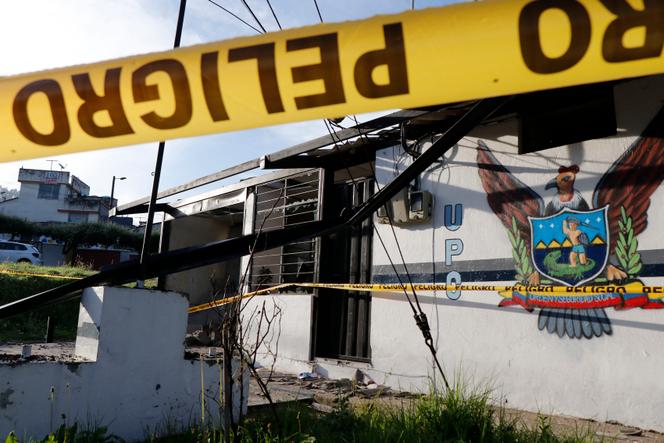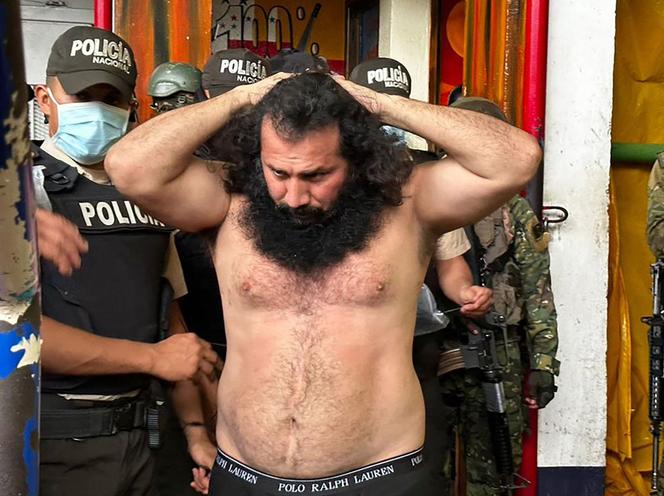


The decision to close schools was taken twelve hours too late. On Tuesday, January 9, amid the chaos that had engulfed Ecuador for two days, musician Diego Gallardo was killed by a stray bullet in Guayaquil, the country's main port, as he was on his way to pick up his son from school. At least thirteen other people have also been killed between Monday and Tuesday by gunfire from criminal gangs. President Daniel Noboa, 36, who has been in office for barely fifty days, declared on Wednesday that the country was "at war."
The day before, he had declared the existence of an "internal armed conflict" and identified 22 gangs as "terrorists" who would henceforth be treated as "a military objective" – a decision approved on Wednesday by the entire Parliament, despite Noboa not having a majority. From Belgium, left-wing ex-president Rafael Correa (2007-2017), who had backed Noboa's presidential opponent Luisa Gonzalez, has assured the president of his "total support": "Today is the time for national unity. Organized crime has declared war on the State, and the State must prevail."
Images of the violent clashes have been broadcast around the world: Passers-by running for cover amid the gunfire, students holed up in classrooms or fleeing their schools, cars set on fire, and even hooded men armed with dynamite who burst onto a live public television set, taking journalists and technicians hostage until the police intervened.
"We've never experienced such chaos, such coordinated attacks in different cities," said Carla Alvarez, a security expert, professor and researcher at the Institute of Higher National Studies in Quito. On Wednesday, around 100 prison officials were still being held hostage in five prisons. The Chief of the General Staff, Jaime Vela, said that five assailants had been killed and 329 arrested. The neighboring countries – Colombia and Peru – announced that their border security forces had been put on alert.
This explosion of violence was triggered by the escape, on Sunday, of one of the country's most dangerous criminals, José Adolfo Macias Villamar, alias "Fito," leader of the Los Choneros gang. The man is accused of having orchestrated the August 2023 assassination of presidential candidate Fernando Villavicencio, a champion of the fight against corruption. In response, President Noboa declared a state of emergency on Monday.

Such a decision is nothing out of the ordinary in Ecuador. His predecessor, Guillermo Lasso, had declared a state of emergency some twenty times during his barely twenty-eight months in office – elected in 2021, he dissolved parliament in May, which had been threatening to impeach him, triggering early elections on August 20. Yet the decision to send the army into prisons and the images of inmates in their underwear, hands on their heads and lying on the ground, brought to mind President Nayib Bukele's "war on gangs" in El Salvador, with all its arbitrary detentions and mistreatment. This would trigger riots, hostage-taking and shootings in Ecuador.
You have 60% of this article left to read. The rest is for subscribers only.
